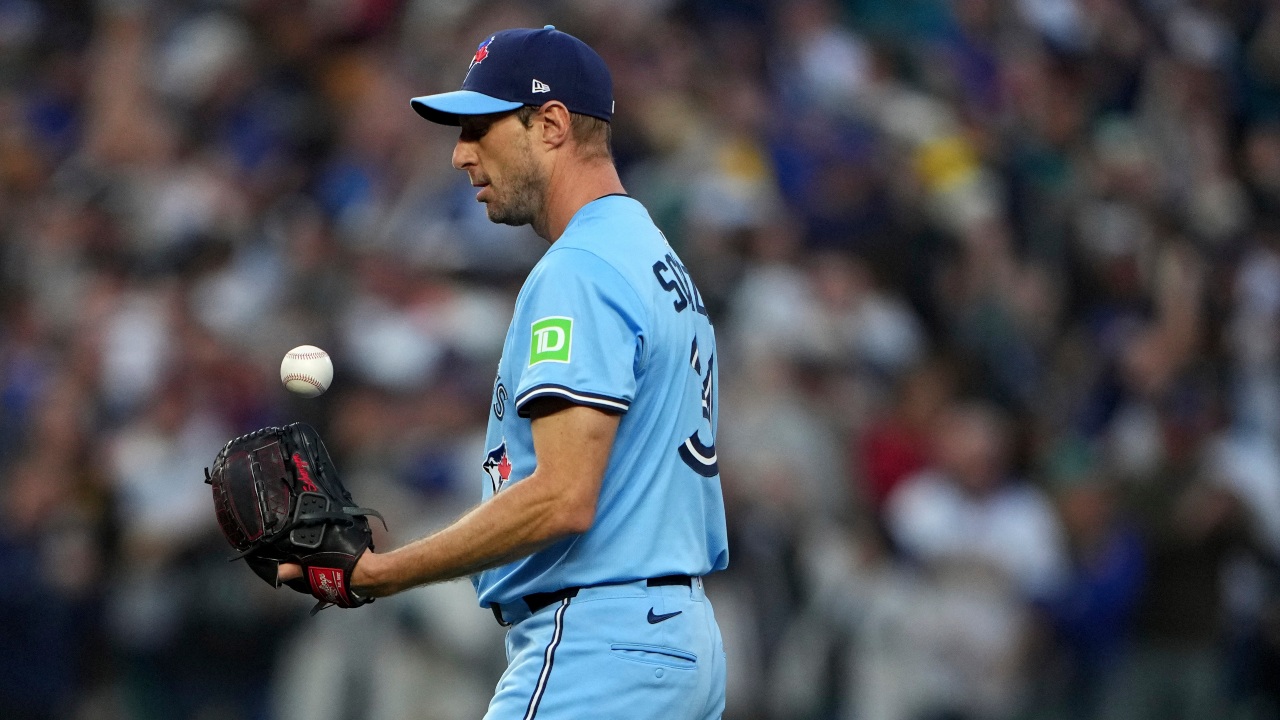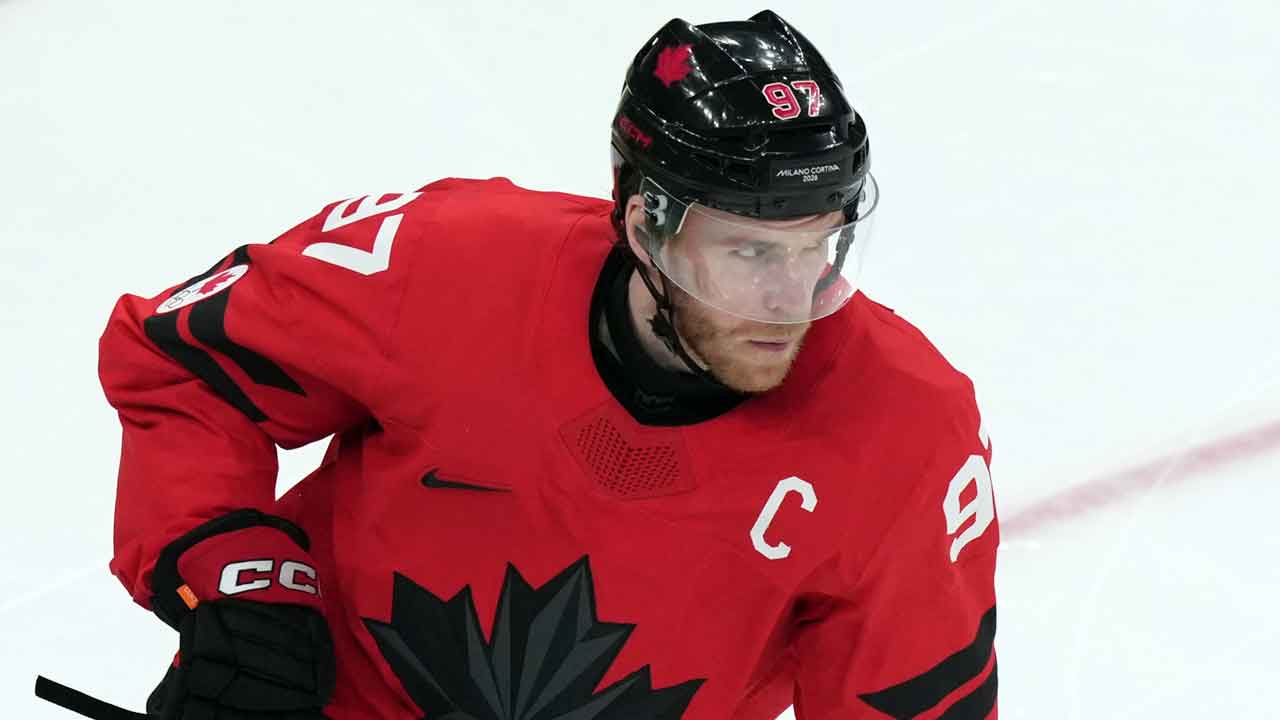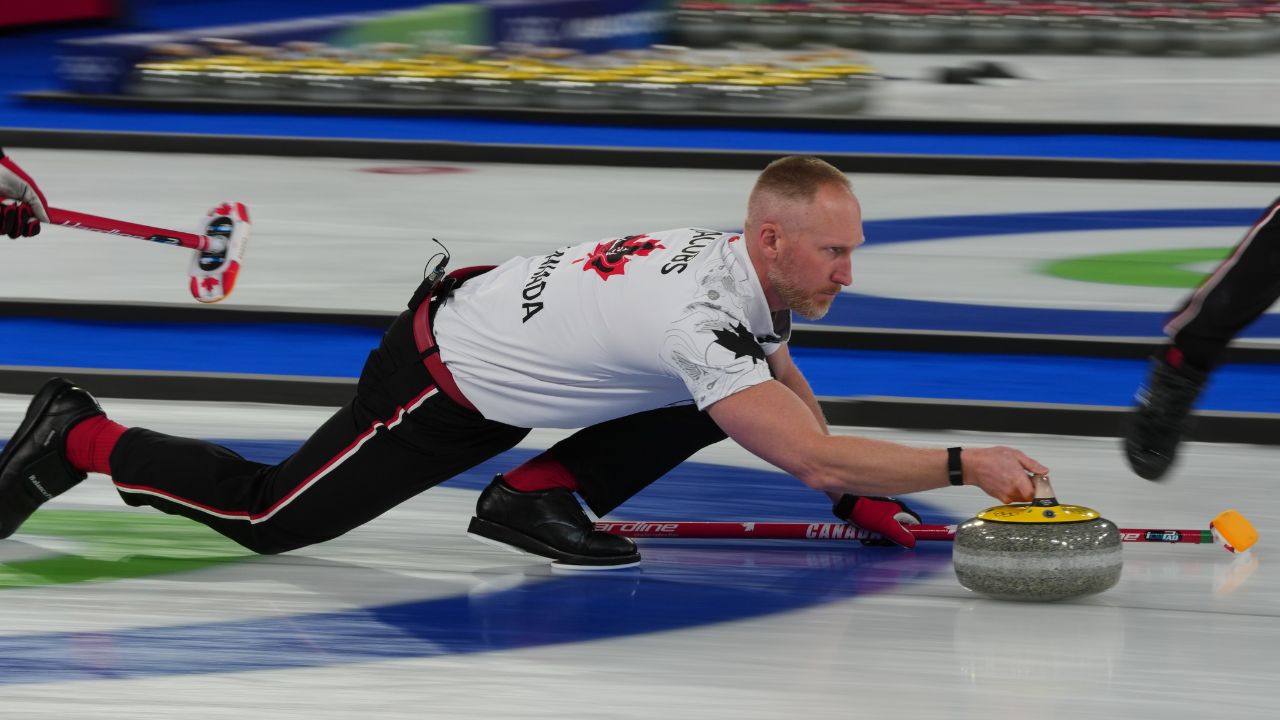
LOS ANGELES — With a gritty pitching performance and one of the more memorable mound visits in recent memory, it took Max Scherzer just one Toronto Blue Jays playoff start to make a lasting impression.
For his second act, the stakes are even higher: a matchup against Shohei Ohtani and the Los Angeles Dodgers in Game 3 of the World Series (8 p.m. ET / 5 p.m. PT, Sportsnet, Sportsnet+). With the series now tied 1-1, one team will take a powerful grip on the series while the other will face immense pressure to come back in Game 4 on Monday.
Now 41, Scherzer will become the first player to pitch for four teams in the World Series (he also appeared in the Fall Classic with the 2012 Tigers, the 2019 Nationals and the 2023 Rangers). But whenever he’s been asked to compare this team to previous clubs he’s pitched for his answer has been consistent: regardless of his age, every chance to compete against the best hitters in the world inspires him as a competitor.
“I mean, this is what you play for,” he said over the weekend. “To be able to get to this spot, to get to this moment, to have a shot at it. You just think about all — throughout your whole life all the different things that have unfolded, and just so fortunate to have another crack at this.”
-

-
Watch the Blue Jays in the World Series on Sportsnet
The World Series shifts to California as the Toronto Blue Jays look for their first title in 32 years against the Los Angeles Dodgers. Watch Game 3 on Monday at 8 p.m. ET / 5 p.m. PT on Sportsnet and Sportsnet+.
As Scherzer points out, many great players never get the chance to play in a World Series — a group including Ken Griffey Jr., Ichiro Suzuki, Frank Thomas and current Blue Jays bench coach Don Mattingly. That knowledge humbles Scherzer, who covered 5.2 innings while allowing two runs and striking out five in his ALCS win.
“I absolutely respect playing in a World Series,” he said. “And absolutely cherish these opportunities. So, yeah, when I get a chance to get the ball, man, this means everything.”
With Shane Bieber slated to start Game 4, the Blue Jays have back-to-back Cy Young Award winners going to open things up in Los Angeles. Scherzer and Bieber will become the eighth such duo in World Series history and the first since Justin Verlander and Zack Greinke in 2019. Fittingly, the first-ever duo was future Hall of Famers Sandy Koufax and Don Drysdale for the Dodgers in 1966.
After a day off Sunday, the Blue Jays’ bullpen will be fresh for Game 3, with manager John Schneider saying every reliever will be available to pitch three games in a row if needed. That’s a notable departure from the regular season, when relievers almost never go three times in a row — but an appropriate one given the opportunity to win it all.
As Game 3 progresses, Schneider and pitching coach Pete Walker will think about how best to deploy their bullpen, knowing that the winner of Game 3 has taken the series 65 per cent of the time. As the Blue Jays showed in Seattle, they’re willing to let Scherzer pitch deep into a game if his stuff and command are there.
But as Scherzer knows from experience, there’s little point in trying to anticipate how the game will unfold. He and the Blue Jays coaching staff will simply have to adjust in real time, knowing the stakes, understanding the availability of the bullpen and relying on the trust that’s been built bit by bit as the 2025 season has unfolded.
“I mean, this is baseball,” Scherzer said. “Every time you think you can figure out baseball and put it into an equation, baseball has a funny way of shaking that up and making you look at the game in a whole different way. You can’t make baseball into an equation. Anything can happen. The ball can bounce any which way and you got to go out there and make your own luck.”
Roki the closer
Eventually, Roki Sasaki has the potential to be an elite starting pitcher, but the 23-year-old has been thriving as a late-game reliever this October and it’s a role he’s expected to stay in for the time being. Asked whether he might use Sasaki in a high-leverage situation earlier in a game, Dodgers manager Dave Roberts suggested that possibility was unlikely.
“Probably using him more towards the back,” Roberts said after complaining about his trip back to Los Angeles. “I’m not going to say I’m going to be beholden to that throughout the whole series, but I think kind of the way I look at it now more towards its back end.”
Slow motion
In some ways, the Blue Jays are a throwback team. They play elite defence, make a lot of contact and even bunt. But somewhat incongruously this team is notably slow right now — not that it’s by design.
While Bo Bichette (left knee) will likely play second base Monday, he’s clearly less than 100 per cent now and so is George Springer (right knee). Meanwhile, Alejandro Kirk is one of the slowest runners in baseball even when he’s at full speed and that’s a third of the team’s starting lineup these days. And while Springer can move when he has to, Bichette and Kirk appear to be station to station baserunners right now.
Furthermore, the bench got a little slower when the Blue Jays replaced Joey Loperfido with Ty France in search of better pinch hit options against the L.A. bullpen. Now the only real speed option off the Blue Jays’ five-man bench is Myles Straw, a legitimate burner.
Ultimately, speed is just part of the equation. The lack of speed hasn’t stopped the Blue Jays from getting this far because they do so many other things well. It’s just notable in the context of a throwback team that showcases many other old-school skills.






